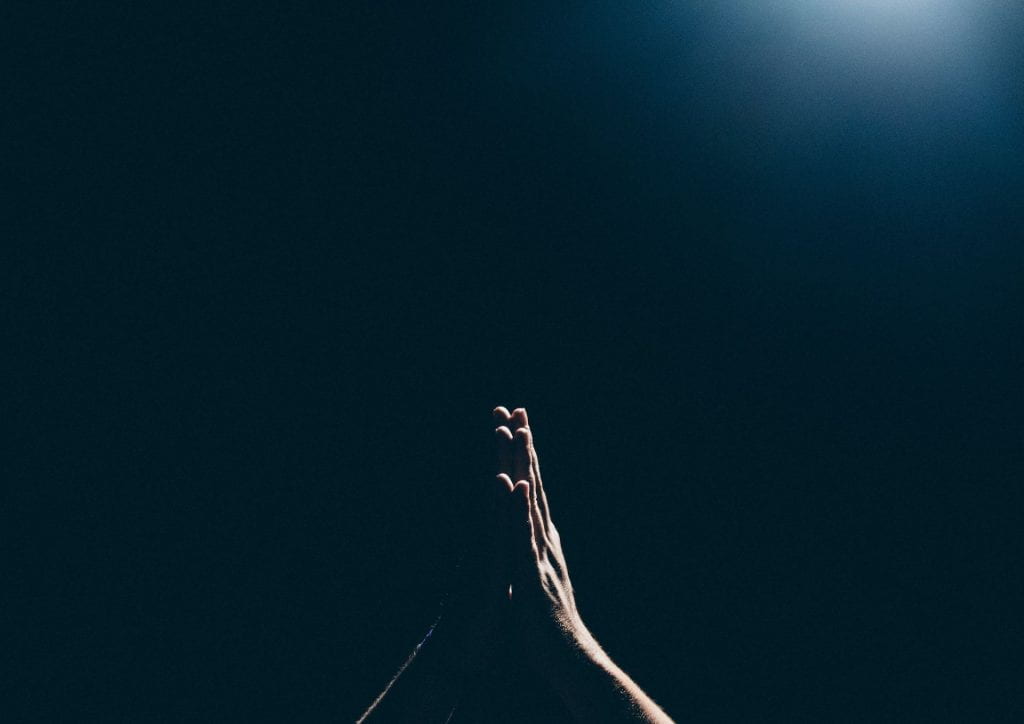“Pray as you can, not as you can’t,” said my professor as we students felt torn between different methods, none of which seemed to fit.
“I’ll pray for you and your girls,” I told my friend last week after she was hospitalized with four aneurisms.
“Thoughts and prayers are not enough!” say countless people after preventable tragedies happen and those tweeted words just seem so hollow.
Is prayer not enough? Is there a right way to do it?
I don’t think there is a best way to pray, but in an article on the subject Fr. Robert Maloney, C.M., writes in a clear and practical way about Vincent de Paul’s wisdom on prayer.1 It is very much worth a read, and two things particularly struck me when recently reviewing it.
The first is Maloney’s reminder that “Few things were as important as prayer in St. Vincent’s mind.” Vincent’s Common Rule called for an hour of mental prayer each day, and he spent considerable time giving practical guidance to his contemporaries about praying, much of which is still very timely.
The second point speaks both to those who call themselves Vincentian but don’t have a prayer practice or theistic framework, and to those who pray to connect to God. Four centuries ago, Vincent asserted that (in my interpretation) thoughts and prayers are essential, but indeed are not enough. Maloney relates, “He [Vincent] warns over and over again about regarding prayer as a speculative study. He cautions about its becoming an occasion for vanity or for ‘beautiful thoughts’ that lead nowhere.”
In an article on Vincent and prayer, Vinicius Teixeira Ribeiro, C.M., relates how Vincent cautioned his confreres: “it doesn’t suffice to have good affections, we must go further and be motivated to take resolutions to work seriously in the future.…”2 Ribeiro writes how prayer must be grounded in reality to create “prayerful, thinking and active people.” For Vincent, action was modeled on Jesus as known through the scriptures—serving the poor, leading with humility, working for God’s justice, and acting within a community of others.
I believe that in many ways, as Søren Kierkegaard said, “The function of prayer is not to influence God, but rather to change the nature of the one who prays.” Yes, I pray for others. I pray for my friend in the hospital and for those suffering from Covid in India. I do think prayer matters and that prayers are “effective” in some real way, though I don’t know exactly how. But these days, I’ve been reflecting on prayer as a channel to change me: to strengthen me to do the things I need to do for justice, pay attention to the world as it really is, and to pause for inner wisdom to ensure that the actions I take are the right ones to the best of my understanding.
“Pray as you can, not as you can’t.” For those who feel called to do so—pray!
And, as we approach the National Day of Prayer on May 6th, know that millions of others across many religious and spiritual traditions are praying with you, and dare I hope, preparing themselves through prayer and thoughtful reflection to also take the right action.
1 Robert P. Maloney, C.M., “Mental Prayer: Yesterday and Today – Some Reflections on the Vincentian Tradition,” Vincentiana 39:2 (1995), available online at: Mental Prayer: Yesterday and Today.
2 Vinicius Teixeira Ribeiro, C.M., “Prayer According to Saint Vincent de Paul – Part III,” 19 April 2020, Famvin.org, at: Prayer According to Saint Vincent.
Reflection by: Katie Brick, Executive Assistant, Division of Mission and Ministry
